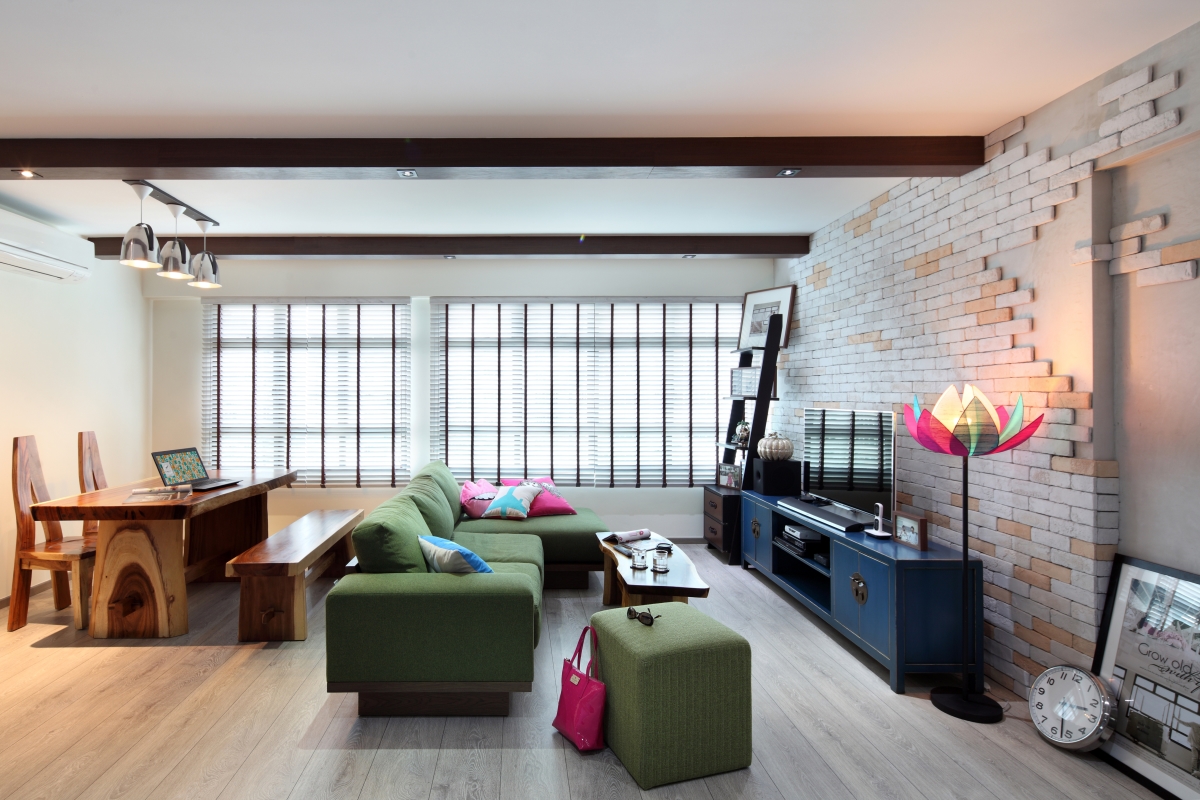Beware: The Popping Tile Phenomenon In Singapore
Maintenance & Repair3 minutes read
53512 views
53512 views
If you’re an active follower of the Singapore Renovation industry, then you might have heard of the recent ‘popping tile’ debacle. It’s an issue that is serious enough to have warranted the attention of even the Housing Board – who recently took to social media to warn potential victims of this ‘popping.’
Read also: Selecting the right tiles for your bathroom
So here are the details:
Basically, what’s happening is that many residents who live in HDB flats have found that the tiles in their homes are popping and cracking up. The tiles only shatter partially, but any slight pressure can trigger them to fully decompress – so step wisely, folks.
HDB authorities have advised all to move these tiles to a safe spot, and then cover the affected area with cardboard. Many residents have attributed this inadvertent cracking to the drastically lowered temperatures, while others think there might be more reasons like low-quality tiles or inappropriately mixed cement.
If you’re suspect to more speculation, then poor adhesives, poor workmanship and brittleness due to the cold atmosphere may be attributed to this phenomenon.
On this note, here are a few things you’ll experience when these tile starts to shatter and what you must do in the aftermath:
- A loud, cracking noise. The sound may get louder progressively.
- You’ll notice that the tile starts bending inwards. It may look supernatural, but you must stay calm.
- Don’t step on these warped tiles.
- You should cover the affected area with cardboard and set the shattered pieces aside.
- Contact the relevant HDB authorities to take a look at the cracked flooring.
In order for you to understand or speculate what is happening, here’s a list of some general reasons that may have contributed to the popping floor tile phenomenon:
- Shoddy workmanship.
- Cement mixed in the wrong sand-cement-water proportion. This one can lead to trapped air-pockets under the adhesive.
- Natural wear and tear. This means that the quality of the applied tiles was low quality.
- Erratic weather conditions. Fleeting hot and cold temperatures may cause the tiles to contract and expand too quickly.
Home renovation is generally a very expensive venture, and people tend to expect their aesthetic to last for a long, long time after the economical, physical and mental investment that they’ve put in. So the tiles dislodging all over Singapore has been quite a source of distress for many. A cracked floor can result in several physical maintenance works and everything that comes with the process.
In light of these recent events, here are a few tips from experts:
- Invest in proper workmanship: The tiles should be at least 2mm apart. Don’t do otherwise in fear of cleaning the grout.
- Strong adhesive: If you’re in the middle of your home renovation, or are thinking about redoing your floors, then make sure that you use a strong adhesive.
- Keep the science in mind: Its basic science that heat expands a few materials, while cold weather makes them contract. So always keep the differential thermal expansion and contraction in mind before you choose any floor finish.
Specialists have suggested replacing the whole tiled area instead of only the affected parts to avoid any incompatibilities.
Moreover, since the HDB only offers a one-year Defect Liability Period, members of the HDB department are asking the residents to invest in personal maintenance.
At Renotalk, we’ve been getting a lot of renovation requests to help hack up and retile due to this ‘popping.’ Click here if you need some repairs and maintenance done to your floor tiles. Our contractors and interior designers will definitely help you make the most of this situation and in a safe way.
Request for quotes and we'll match you with a selection of Interior Designers!
Previous
Picking Out The Best Accent Chairs


 Sign Up with Google
Sign Up with Google

.jpg)